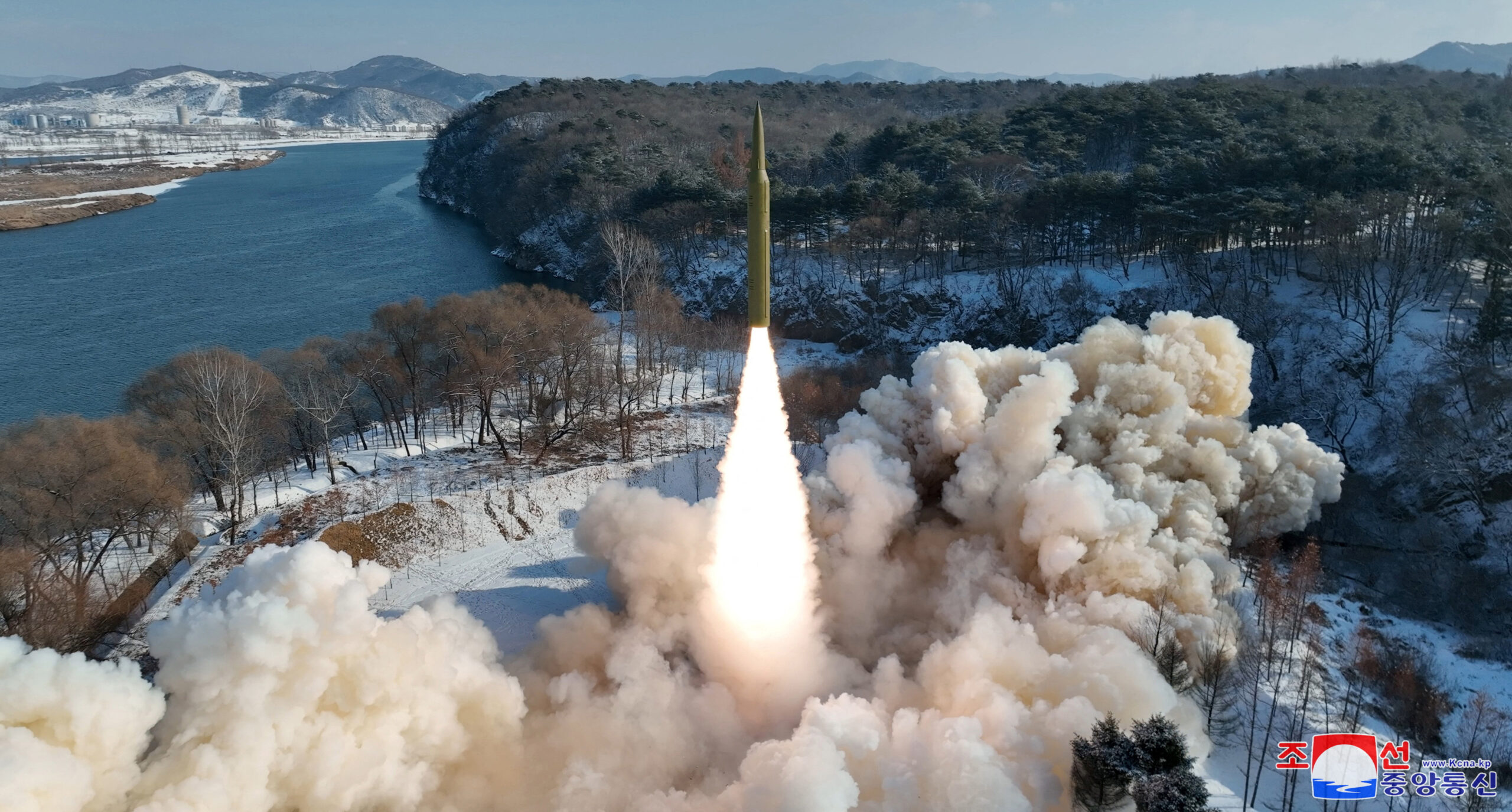Already a subscriber? Make sure to log into your account before viewing this content. You can access your account by hitting the “login” button on the top right corner. Still unable to see the content after signing in? Make sure your card on file is up-to-date.
North Korean state media has reported the successful test of a new solid-fuel hypersonic missile with intermediate range.
The test, aimed at assessing the reliability of multi-stage, high-thrust solid-fuel engines, and an intermediate-range hypersonic maneuverable controlled warhead, occurred as Foreign Minister Choe Son Hui led a delegation to Russia from Pyongyang.

According to South Korea’s military, the missile launched from the Pyongyang area around 2:55 p.m. (0555 GMT) on Sunday, traveling approximately 1,000 km (600 miles) over the country’s east coast. The Japanese defense ministry reported that the missile reached a maximum altitude of at least 50 km (30 miles). Notably, North Korea had previously conducted tests of its new solid-fuel engines for an intermediate ballistic missile on November 11 and November 14, highlighting its ongoing efforts to advance its missile capabilities.
The missile test coincides with escalating tensions in the Korean Peninsula following North Korea’s recent intercontinental ballistic missile launches and the deployment of its first military spy satellite. These developments, along with Pyongyang’s strengthening ties with Moscow, have raised concerns in Washington and among its allies.
KCNA, in a separate commentary, accused South Korea of heightening regional tensions through military drills and calls for armament by South Korean officials. The commentary warned, “Even a little spark can be a catalyst for enormous physical conflicts between the two most hostile countries.”
This latest missile test follows North Korea’s strategic shift in policy towards South Korea, now designated as a “separate, enemy state.” Kim Jong Un recently declared that peaceful reunification is no longer feasible, a stance that analysts suggest could lay the groundwork for justifying the use of nuclear weapons against Seoul in any future conflict.






